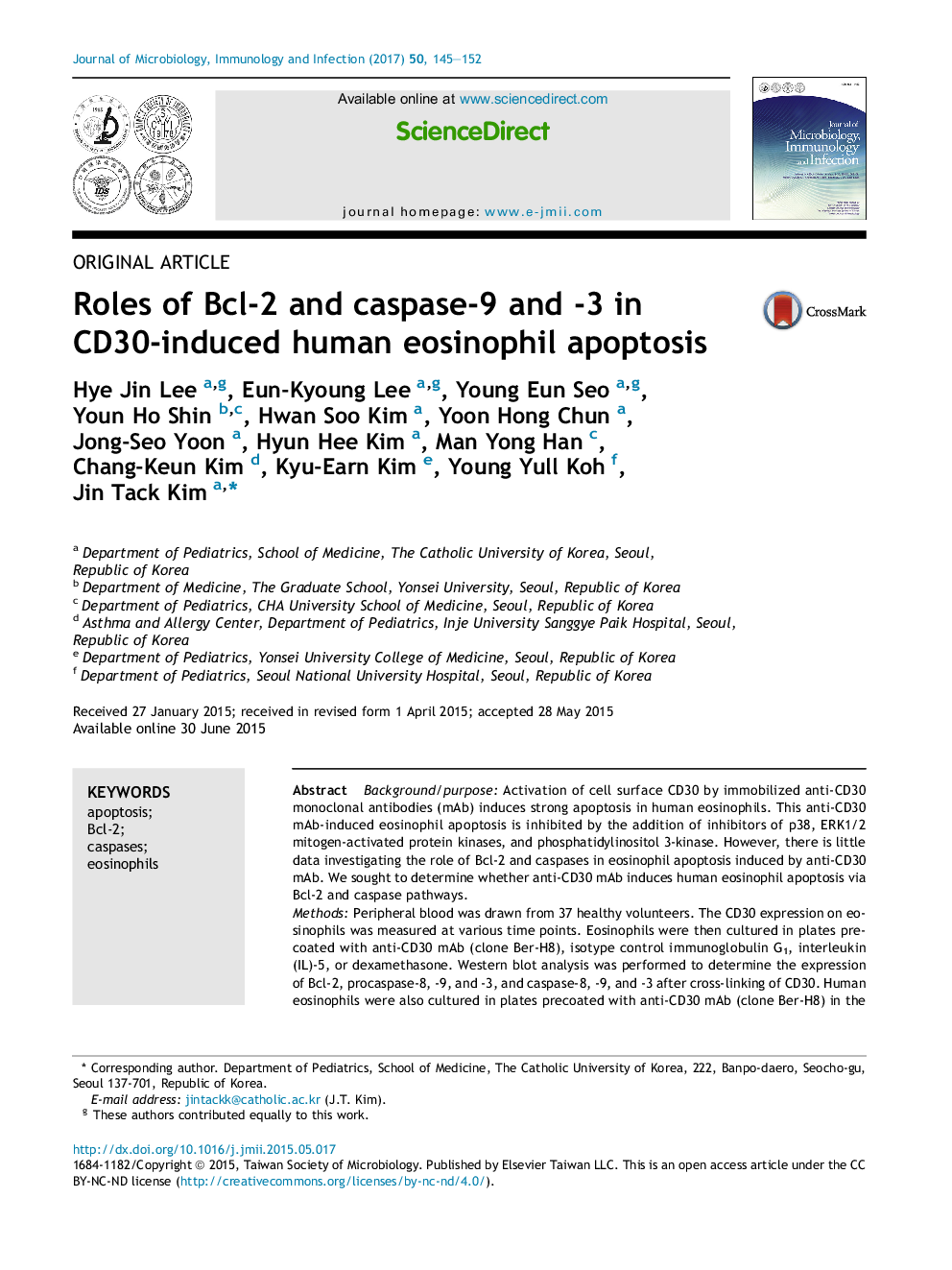| Article ID | Journal | Published Year | Pages | File Type |
|---|---|---|---|---|
| 5669133 | Journal of Microbiology, Immunology and Infection | 2017 | 8 Pages |
Background/purposeActivation of cell surface CD30 by immobilized anti-CD30 monoclonal antibodies (mAb) induces strong apoptosis in human eosinophils. This anti-CD30 mAb-induced eosinophil apoptosis is inhibited by the addition of inhibitors of p38, ERK1/2 mitogen-activated protein kinases, and phosphatidylinositol 3-kinase. However, there is little data investigating the role of Bcl-2 and caspases in eosinophil apoptosis induced by anti-CD30 mAb. We sought to determine whether anti-CD30 mAb induces human eosinophil apoptosis via Bcl-2 and caspase pathways.MethodsPeripheral blood was drawn from 37 healthy volunteers. The CD30 expression on eosinophils was measured at various time points. Eosinophils were then cultured in plates precoated with anti-CD30 mAb (clone Ber-H8), isotype control immunoglobulin G1, interleukin (IL)-5, or dexamethasone. Western blot analysis was performed to determine the expression of Bcl-2, procaspase-8, -9, and -3, and caspase-8, -9, and -3 after cross-linking of CD30. Human eosinophils were also cultured in plates precoated with anti-CD30 mAb (clone Ber-H8) in the presence or absence of caspase-9 or -3 inhibitors. Eosinophil apoptosis was assessed using flow cytometry.ResultsThe addition of anti-CD30 mAb significantly increased eosinophil apoptosis compared with controls. In western blot analysis, the addition of anti-CD30 mAb significantly decreased the expression of Bcl-2 and procaspase-9 and -3 and increased the expression of caspase-9 and -3. The addition of caspase-9 or -3 inhibitors decreased anti-CD30 mAb-induced human eosinophil apoptosis. Procaspase-8 or caspase-8 expression was not changed in response to various stimuli.ConclusionAnti-CD30 mAb-induced human eosinophil apoptosis is likely to be mediated through Bcl-2 and caspase-9 and -3.
